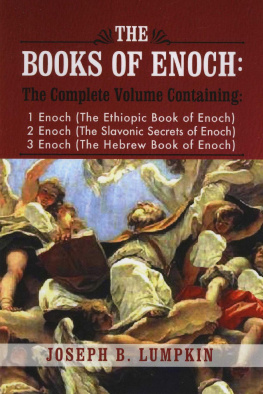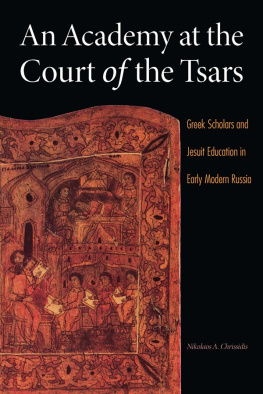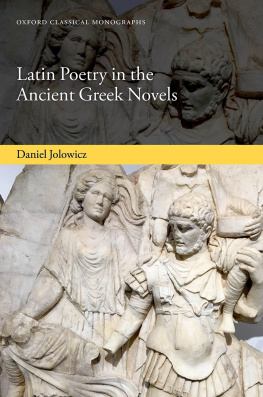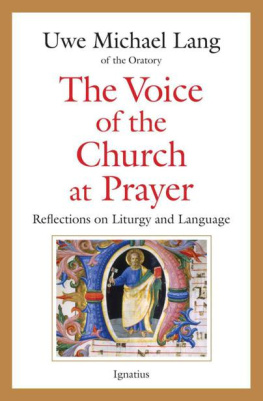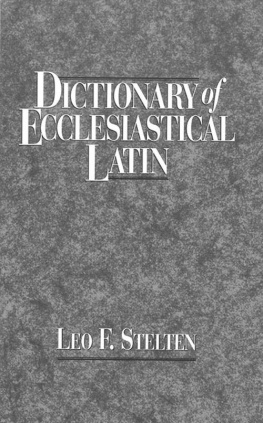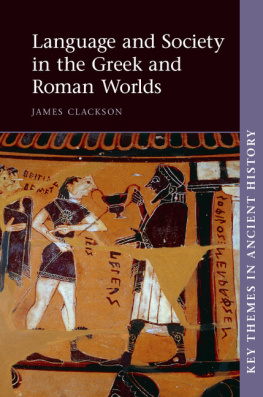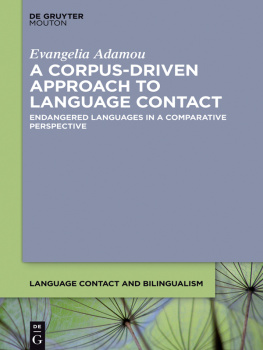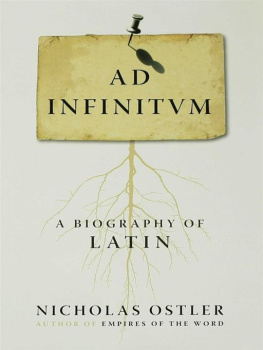Imke Mendoza (editor) - Diachronic Slavonic Syntax: Traces of Latin, Greek and Church Slavonic in Slavonic Syntax
Here you can read online Imke Mendoza (editor) - Diachronic Slavonic Syntax: Traces of Latin, Greek and Church Slavonic in Slavonic Syntax full text of the book (entire story) in english for free. Download pdf and epub, get meaning, cover and reviews about this ebook. year: 2022, publisher: De Gruyter Mouton, genre: Home and family. Description of the work, (preface) as well as reviews are available. Best literature library LitArk.com created for fans of good reading and offers a wide selection of genres:
Romance novel
Science fiction
Adventure
Detective
Science
History
Home and family
Prose
Art
Politics
Computer
Non-fiction
Religion
Business
Children
Humor
Choose a favorite category and find really read worthwhile books. Enjoy immersion in the world of imagination, feel the emotions of the characters or learn something new for yourself, make an fascinating discovery.

- Book:Diachronic Slavonic Syntax: Traces of Latin, Greek and Church Slavonic in Slavonic Syntax
- Author:
- Publisher:De Gruyter Mouton
- Genre:
- Year:2022
- Rating:4 / 5
- Favourites:Add to favourites
- Your mark:
Diachronic Slavonic Syntax: Traces of Latin, Greek and Church Slavonic in Slavonic Syntax: summary, description and annotation
We offer to read an annotation, description, summary or preface (depends on what the author of the book "Diachronic Slavonic Syntax: Traces of Latin, Greek and Church Slavonic in Slavonic Syntax" wrote himself). If you haven't found the necessary information about the book — write in the comments, we will try to find it.
The impact of the ecclesiastical languages Greek, Latin and Church Slavonic on the Slavic standard languages still lacks a systematic analysis in the theoretical framework of contact linguistics. Based on corpus data, this volume offers an account in the light of literacy language contact, i.e. contact between varieties that are used only in a written variant and only in formal registers. Latin was used as literary language in medieval Slavia Romana; Greek was the source language for Church Slavonic, which, in turn, was the literary language for many Slavonic speaking communities and thus had an enormous impact on the development of the modern Slavonic standard languages. The book offers in-depth analyses of the impact of Latin on pre-Standard Slavonic varieties, the influence of Greek on (Old) Church Slavonic and the role of Church Slavonic as a source language for Old and Modern Russian. The contributions discuss (morpho)syntactic phenomena such as non-finite clauses, relative clauses, word order, the use and function of case and tense forms. The volume addresses Slavists, General linguists and scholars of Classical Philology interested in language contact and syntactic issues.
Imke Mendoza (editor): author's other books
Who wrote Diachronic Slavonic Syntax: Traces of Latin, Greek and Church Slavonic in Slavonic Syntax? Find out the surname, the name of the author of the book and a list of all author's works by series.

